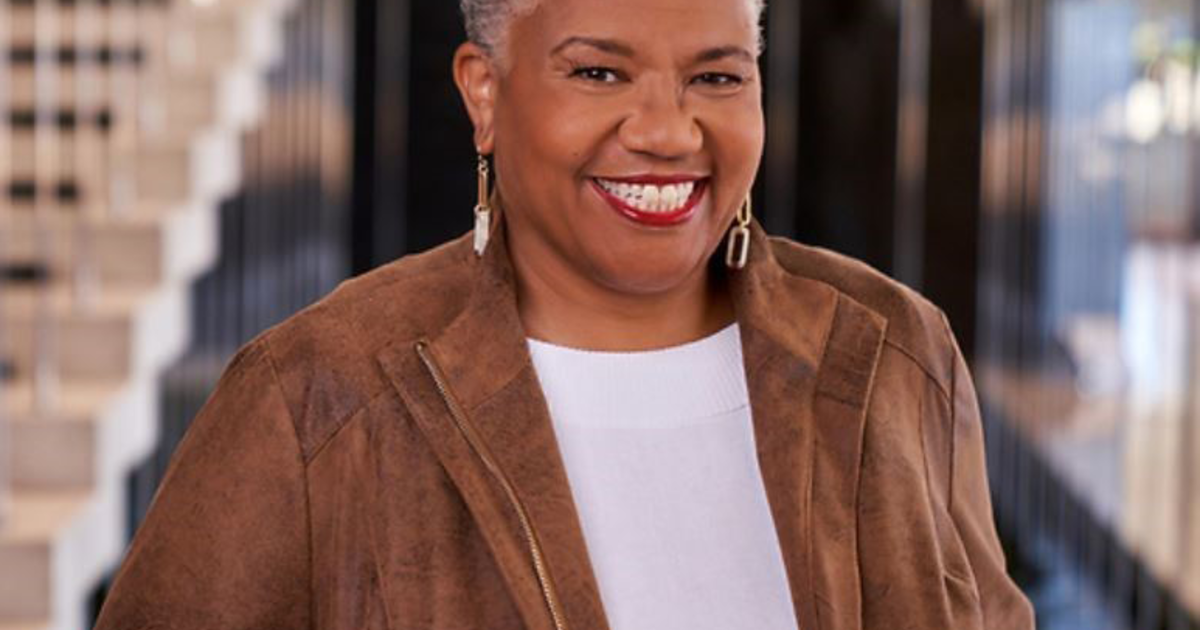
Telva McGruder says as General Motors’ first chief diversity, equity and inclusion officer, she is focused on people — part of CEO Mary Barra’s mission to make GM the most inclusive company in the world.
But for McGruder that’s really nothing new — it’s been her approach during her entire career. “A lot of my growth and my ultimate success has been based on my approach to people — my interest in listening and learning from them and helping them know they brought value to the company,” she says.
And that, in turn, may stem from her dad.
“My father worked in the auto industry, at a powertrain component factory in the Dayton area, where I grew up,” says McGruder. “He was a hard worker, and really focused on contributing to a quality product. I remember that he was consistently frustrated by people not listening to his ideas. ‘I run this machine, but they don’t ask my opinion,’ he’d say.”
After McGruder earned electrical engineering bachelor’s and master’s degrees from Purdue University, did a stint at NASA and joined the auto industry, she began to understand what her dad experienced. “I learned that we had room to improve in terms of listening to people,” she says.
Named GM’s first diversity officer two years ago in the wake of the George Floyd killing and the subsequent social justice movement, McGruder’s charge is expanding opportunities for women and other underrepresented groups. She says things have improved since she started as a controls engineer in manufacturing engineering more than 28 years ago.
“Being a woman in our industry has evolved tremendously. Early in my career, as a young woman, I’d try to watch what was going on with other women — but there just were not very many women at all, in engineering or anything technical. So, I’d form allyships with women in skilled trades,” she says. “The women who were there were really tough — because you had to be. You had to have a certain demeanor to handle the rapid decision-making, and to be the voice of women in a world of men.”
Today, she says, “What’s changed is that there are many more women everywhere in our business — and the way they are interacting and leading is tremendous. That’s happened with consistent effort over time — uplifting women, giving them the chance to grow their skill set. Then bringing those voices forward and putting them in positions where they’re leading teams and making decisions.”
But McGruder says the industry still needs to be intentional about supporting women. “It’s really important that we have that intent,” she says. “We can make the mistake of assuming that because we have so many women now, we don’t need that anymore. It’s easy to get complacent.”
What do women bring to the industry? “Consider when we’re trying to come up with a new business solution, a product or launch solution. Often when we have a diverse group in the room, you’ll see that women will approach that solution differently. Because of their lived experience, they will take into account all the connecting dots. It won’t just be about the exact problem we’re trying to solve, but also the people who are being impacted,” she says. “Women realize that often we miss the things at the edges. We need to make sure we’re paying attention to the nuance, to the small details that we need to consider.”
As a result, she says, “What we get are products that are more relatable to our customers. When we design our user experience, it’s much more tactile and mindful of our customers because of the questions women are asking in the space.”
Today part of her role is evangelizing about the ongoing importance of having more diverse voices, including women, in all facets of the industry. In addition to being part of GM’s Executive Leadership Council, she is chair of the board of directors for Girl Scouts of Southeastern Michigan and a member of the board for Engineering Tomorrow, a nonprofit organization dedicated to building the next generation of engineers.
“We have to spend our time as professionals in the industry investing in young ladies. That is not just doing an occasional STEM workshop — it needs to be more than that. We need to invest our time with young ladies and their families to help them understand that they have the ability to grow into careers in STEM,” she says. “Unfortunately we have cultural norms that don’t expose young women early to those opportunities. Then their exposure is often marginalized. It’s an environment where people are telling them to be careful, and their parents are worrying about them being hurt. We need to sit with them and their families to understand that this is not scary, but really exciting — cool, challenging. And that she is capable of doing it.”